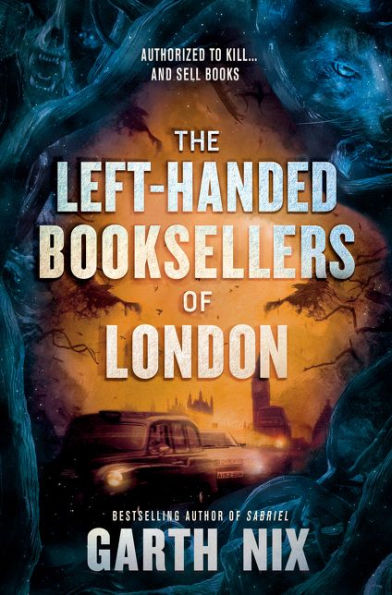My first job out of university was in a bookshop. Dalton’s Bookshop in Canberra, the federal capital of Australia, which is in some ways a kind of mini-me of Washington, D.C. crossed with an Australian country town. Dalton’s was the biggest and best bookshop in the city, a family-owned business that was spread over two floors of a large building in the city centre. A spiral staircase joined the two floors and we liked to slide down the banister and jump off the end to land in front of a customer and ask, “Can I help you?”
I loved working in the bookshop, and probably would have worked there for much longer than nine months but the owners wanted to retire, and they knew the secret of success in independent bookselling: own the real estate. They sold the building. Generously, they gave a retrenchment payment even to new staff members like myself, though in my case I had “bought” so many books utilising my staff discount on account that I still owed them money.
I had always loved bookshops simply as a customer, but working in one gave me a whole new appreciation of bookselling. Matching a reader with a book when they didn’t really know what they wanted; finding a book from the barest description, most often without a title or author, or both remembered incorrectly; unpacking the new releases, which was like discovering a new treasure trove every week; and of course, that wonderful staff discount.
Many of the staff were already friends, or we became friends, and we used to hold competitions amongst ourselves to sell difficult books like the very expensive hardcover of The Ashley Book of Knots, or the most copies of a particular new release. We used to write notes to the next shift on narrow strips of paper torn from packaging, which were then placed in the arms of the small plastic dragon who stood next to the cash register, itself a prize from a publisher’s rep for selling the most copies of Sharon Penman’s Here Be Dragons, a (very good) book that taught me the importance of a cover and title properly communicating the genre of the book. It is a historical novel but that first British paperback we had looked and sounded like a fantasy, so the history buffs wouldn’t pick it up and the fantasy readers would reject it after reading the first paragraph of the blurb. It had to be hand-sold, and even then it was a challenge. Hence the dragon trophy.
After Dalton’s closed, I became a sales representative for a small academic publisher, and in that capacity visited many bookshops in a different role, trying to sell our books to booksellers, to gain a place for them so they might then go on to meet their readers. As it was a rather specialised press with only two regular sellers that booksellers ever wanted to stock, it was quite a difficult job. I’d visit two, three or four bookshops a day and though I didn’t like that job as much as actually working in the bookshop, I did love visiting all the different shops and seeing how they approached the trade in their own, sometimes quite unusual, ways. Naturally I also bought books, which occasionally surprised a hard-bitten bookshop owner who suspected it was some sort of sales tactic on my part, at least the first time.
Buy the Book


The Left-Handed Booksellers of London
From being a sales rep I became an editor, eventually a senior editor with a big multinational publisher and then later still a literary agent, and my relationships with bookshops became different again. I also became an author early in this process, forging yet another relationship with bookshops. I will never forget seeing my first book, The Ragwitch, on a new release shelf in The Constant Reader bookshop near my then office, where I used to spend a great many lunch hours and bought many books. In fact, almost thirty years and around forty books later, I am still kind of astounded that books with my name on them will be in bookstores. It never gets old.
Since becoming a published novelist in 1991 and a full-time author from 2001 (after an aborted attempt in 1998, a year where I wrote far less than at any other time) my basic arithmetic tells me I have done a thousand or more events in bookshops, all around the world, though primarily in Australia, the UK and the USA. Great events, for the most part, alloyed with some less good, and the classical few every author suffers, with an audience composed of the booksellers and a publicist and no one else, or the bookshop burning down the day before, and so on. Given many return events I’d guess I have done author events in three or four hundred bookshops, nearly always having a browse or a wander about before or after doing my thing, trying to repress my urge to buy books or convince the kind booksellers who want to give me a copy of something I’ve spotted and enthused over, which I know will simply not fit in my luggage.
Given my deep, varied and abiding connections with bookshops, maybe it is surprising it has taken me so long to write a novel concerning booksellers with magical powers, as I do in The Left-Handed Booksellers of London.
Or perhaps it is simply that the oath I took long ago standing upon the spiral staircase at Dalton’s Bookshop, swearing to never speak of such things, has finally worn off…
The Left-Handed Booksellers of London is available from Katherine Tegen Books.
Read an excerpt here.
Garth Nix has been a full-time writer since 2001, but has also worked as a literary agent, marketing consultant, book editor, book publicist, book sales representative, bookseller, and as a part-time soldier in the Australian Army Reserve. More than six million copies of his books have been sold around the world and his work has been translated into forty-two languages. You can find him online at his website.










